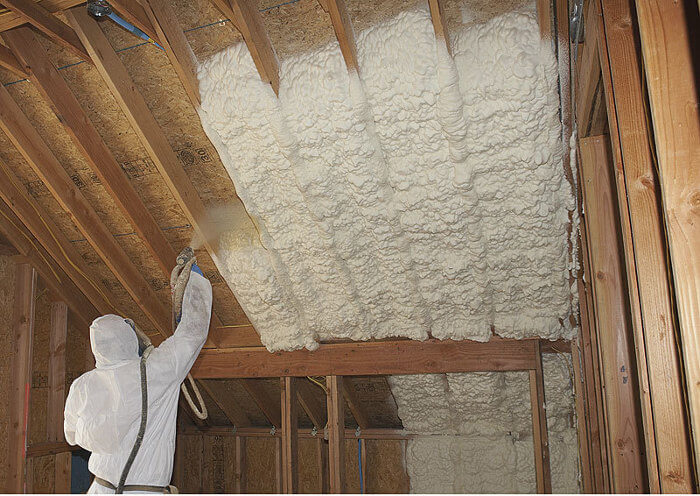When properly installed, spray foam can last for decades and, in some cases, even longer than the age of the building. Look no further if you’re looking for something more secure than rigid foam or fibreglass batts. Its low price, long-lasting adhesion, and bonding properties are unparalleled. If spray foam is something you’re considering, you might be torn between open-cell and closed-cell options. Both have their advantages and disadvantages, so it would be unfair to rank one above the other. The key is to determine which type will be most useful in meeting your specific needs. We explain how one differs from the other from a practical, efficient, and implementation standpoint.
Pricing
Spray-foam insulation costs more or less than traditional insulation methods, and this difference is based on several factors. The amount of insulation material used is typically the deciding factor. Open-cell spray foam is less expensive overall because of its easier installation and cheaper manufacturing. Closed-cell spray foam, on the other hand, often necessitates several thinner coats, which can drive up the installation time and cost. It’s an outlay you’ll have to make only once, but you’ll see a big payoff in the form of an improved home’s resale price and overall living standard.
R-Value
Because of its high R-value, spray foam is typically used to insulate cellars and lofts. The R in R-value refers to the resistance to the flow of heat and the metric system. The R-value is a measure of how well insulation prevents heat from escaping. How well spray foam resists moisture and how long it stays in place are two variables affecting the R-value. In comparison to the weight and inflexibility of closed-cell foam, the lightweight flexibility and ease of installation of open-cell foam make it a superior insulation choice. In comparison to closed-cell foams, open-cell foams are lighter and have a smaller R-value.
Expansion Rates
Generally speaking, the expansion rate of open-cell foam insulation is higher than that of closed-cell foam insulation. After being applied, open-cell spray foam can expand to as much as 100 times its original size. It’s perfect for homes because it can fit through tight spaces like unused nooks and crannies in walls, basements, and attics. Less wear and tear on the HVAC system translates to lower monthly utility costs thanks to open-cell foam. Closed-cell spray foam is denser than open-cell spray foam, so it doesn’t expand as quickly. Despite this, it still possesses the same beneficial air-sealing properties as open-cell foam.
Permeability
Spray foams, whether open or closed cells, can create a protective barrier against air leaks, heat loss, and moisture. Due to its cell structure, open-cell foam allows some moisture through, which aids in the speed with which leaks can be located and repaired. However, closed-cell spray foam is watertight and won’t become drenched. This quality makes it an excellent choice for use in humid, flood-prone, and precipitously wet areas where sheaths and frames need to be strengthened.
When it comes to dampening sound waves, open-cell foam is superior to closed-cell foam’s tight, dense structure because of its thicker composition and softer source material. Mould and mildew can’t grow in closed-cell spray foam insulation because it’s too sterile an environment for them. The elimination of dust and allergens is so great in open-cell foam that it can be used anywhere.
Get in touch with Isothane.
The construction industry and the home improvement sector can both benefit from polyurethane’s wide range of uses. With polyurethane, Isothane manufactures its spray foam products for its clientele. We are able to call on the industry’s top installers because of our extensive network of contacts in the field. If you’re interested in learning more, contact us.


